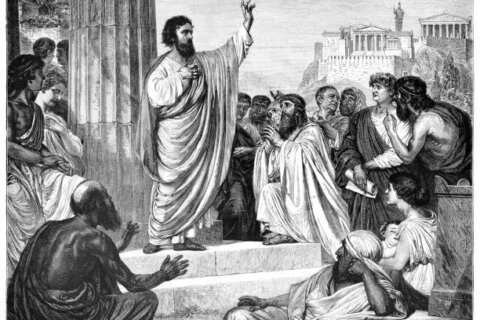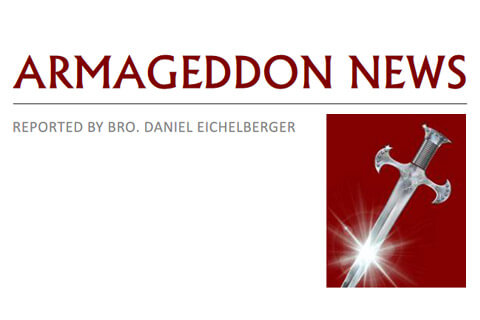Excerpts from THE ELDER BROTHER by E.P. Tenney
THE TEACHING OF JESUS IN regard to advancing the kingdom of God, implies a state of warfare, in order that men of good will may be at peace: “first pure, then peaceable.” Jesus never taught that it was a matter of indifference how men were related to Him. They must decide against Him, or be on His side. Jesus joined issue with the world, the flesh, and the devil.
— Dean Stanley—
With a majestic self-assertion of His claims, with great boldness identifying Himself with the work of the Father and Moral Governor of mankind, Jesus spoke with authority, with a certain urgency, in an aggressive spirit, bringing matters to a crisis in respect to personal allegiance or hostility.
Did He not test the multitudes with such doctrines that many left Him? He sifted them. Men were to be attached to Him by the truth or not at all. “Come unto me,” He said, “Take my yoke upon you.” But they had to leave Mammon behind them; He would allow no divided service. “He who is not with me is against me, and he that gathereth not with me scattereth abroad.”
The teaching of Jesus was preeminently incisive. His appeals were direct, personal, pointed, practical; inviting men to immediate action for or against, the kingdom of God.
On one occasion, Jesus startled His hearers by turning round in the face of a crowd who were following Him, and saying abruptly, “If any man come to me, and hate not his father, and mother, and wife, and children, and brethren, and sisters, yea, and his own life also, he cannot be my disciple.” This was His text, and the men pricked up their ears to hear the short and pithy sermon or explanation he made of the text. They were given to understand that this business of chasing round in a crowd after a popular favorite, was a very different thing from taking up the true work of disciples. He would not have a wavering unreliable mob at his heels, when they ought to be at the work of godly decision and self-denying service.
And He finished up His remarks to them on that occasion by using what seems to have been a favorite form of speech with Him: “Salt is good: but if the salt have lost his savor, wherewith shall it be seasoned? It is neither fit for the land, nor yet for the dung hill; but men cast it out. He that hath ears to hear, let him hear.” Then he went on His way again.
That His hearers should make good use of their ears, and hear pungent things, He was determined. He made the men about Him know what they would be at. If they would follow Him, He said that He had not so much of a home on this globe as the foxes had. No man putting the hand to His plow was permitted even to look as if he would go back. Whoever would build must first count the cost and do it intelligently. He that was not ready to forsake all he had could never become a disciple. “Seek ye first,” said Jesus, “the kingdom of God, and his righteousness”: God first, and man second; or there is no disciple.
When Jesus saw crowds gathering together in the name of religion, He knew that they might side with the enemies of God when there should come up test questions, and He would have men out and out His, or not His–”Whosoever doth not bear his cross, and come after me, cannot be my disciple.”
It was this close and sharp personal preaching, that separated out from the aimless multitudes a handful of men, who began to conquer the world for their Master.





